The content of the article
People from ancient times knew why and why a cat needs a mustache. It was believed that if a small kitten has a long thick mustache, then, becoming an adult, it will be good to catch mice. Read in our article whether it is worth worrying if the cat began to lose his mustache (scientifically - vibrissa).
Such a trifle, it would seem, is not a cause for great concern and there is no need to panic. However, it is worthwhile for some time to observe the well-being of the pet. The extent and amount of losses depends on how much the cat needs the help of a veterinarian and the urgency of contacting him. If the pet has lost most or all of his mustache, you should pay a visit to the veterinarian as soon as possible.
Why and why does a cat wear a mustache
The mustache adorning the cat resembles male stubble - the same thick and fairly elastic hair. Any cat has a certain number of whiskers located on its face (in the area of the eyes, on the chin and, most importantly, on the cheeks) and on the back of the legs. Each such mustache has a connection with a special area in the brain. In fact, a mustache is not a decoration, but a tool that helps the animal determine its location and by air vibrations to find where the sound or movement comes from. Feline vibrissa help a healthy cat to hunt, find a landmark in the surrounding space and communicate with their own kind.
Why do cats begin to suffer from a mustache?
There are several understandable reasons. For example, other animals live next to the animal - dogs or cats. Between them, clashes necessarily arise over the territory, the championship, ending with the fact that some of the mustache leaves the face of the owner. Often, opponents deliberately pull out a mustache from an adversary in order to inflict maximum harm and desire to dominate him.
The loss of vibrissae is also caused by natural causes - a young mustache grows, and the old one falls out. This process is natural and host intervention is unnecessary.
A warning!
Most often, cats have problems with a mustache from the fact that the owner begins to "care" about them. You can’t cut a mustache for a pet, regardless of the reasons and motives! Only a veterinarian can recommend this in the event that the mustache has grown into the skin or the cat has picked up a fungus, the treatment of which involves the removal of all hair at the site of infection.
Do not pluck a cat mustache. It is not necessary to shorten the vibrissa because the pet smudges them when it eats. The animal will be able to perfectly wash and tidy up its body parts.
Carrying out such, quite harmless manipulations, you can only harm the pet. A cat with a damaged mustache is poorly oriented, experiencing stress and discomfort, and is not self-confident. The beast can become depressed and inadequately begin to behave.
A cat with a cropped or shortened mustache sleeps restlessly, becomes lost and shy. Having lost his mustache, the animal may be mentally broken, and it is not a fact that then it will recover and become the same.
What the mustache is talking about
If you observe what stages the vibrissa goes through in its development, you can see that over time the cat's whiskers become thicker, turn darker, and then become lighter.
The vibrissa, which fell out on its own, is not completely colored, and at the end it has a pointed tip. Such a coarse hair structure shows that the mustache is old and young is growing to replace it.
If the mustache suddenly became light, it means that the cat picked up worms and needs treatment!
A mustache from which a piece or tip has broken off can also serve as a sign and symptom. A healthy cat breaks vibrissae when fighting or playing. Washing, tailed pets are quite careful about this part of the body, and they themselves can not damage the mustache. In what case can a cat's face be decorated on both sides with a broken mustache? The reasons for this are as follows:
- The house has abnormal humidity - either too dry or too wet.
- The cat does not always have the opportunity to drink fresh clean water - the mustache breaks and dries from dehydration. The owner's task is to monitor the availability of water in the cat's drinker.
- The pet does not receive enough elements in the daily diet.
- Owners very often bathe their pet using inappropriate shampoo.
- The pet with the onset of the new time of the year, the metabolism is rebuilt or puberty has come.
The reasons why a mustache falls out
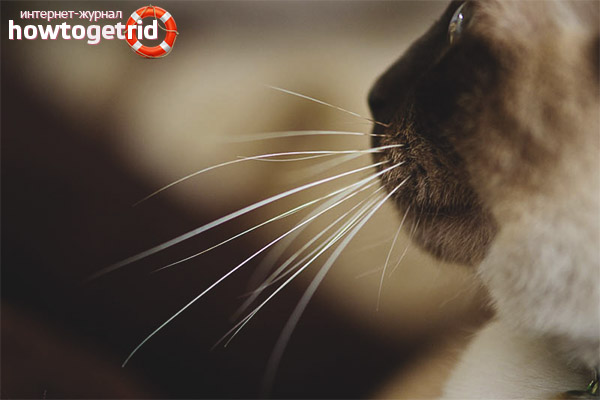
If the cat's condition began to cause concern to the owner, then it is necessary to show the animal to a specialist doctor. But in order for him to correctly diagnose the condition of the cat, it is necessary to make a complete medical history. First you need to carefully examine the pet’s diet and eliminate the shortcomings that exist in it:
- Unbalanced nutrition - the availability of cheap low-quality feed, an abundance of fish products, artificial products and so on.
- A food allergy is a reaction of a cat's body to any product. As a rule, along with hair loss, itching, lacrimation, and salivation occur.
- Not a food allergy - the symptoms are similar to a food allergy, but the body reacts to any surrounding substances. As a rule, it is difficult to detect such an allergy for a long time, so the cat takes antihistamines.
- Deficiency of vitamins in the animal’s body.
- Lack of trace elements - the content of phosphorus, calcium and other substances is very important for the mustache to grow, and the coat is in order. But also these microelements are important for the work of the heart, blood vessels and circulatory system.
- The lack of tauric acid and collagen - it is very important for cats to have these elements in the body. Since the pets living in the apartment have no place to take them, the owner’s task is to give the animal vitamins or diversify the diet, making it balanced and healthy.
How dangerous is it and what to do?
Having dealt with the above points, the animal must be examined and, if necessary, conduct treatment for:
- Parasites are fleas, ticks, worms. Such pests can cause great harm to the cat's body, making the animal incapacitated. Loss of hair and loss of mustache is just the initial harmless stage.
- Fungal infections - such diseases can be detected by examining the skin and taking a skin scraping.
- Skin infections caused by bacteria. Microbes can get into a scratch on a cat’s body and multiply. Such a focus can be seen with the naked eye or found by feeling the animal. During palpation, the beast has a reaction to the pain caused, the cat begins to worry and break out.
- Diabetes It occurs due to disorders in the hormonal system, leading to a metabolic failure. In this case, the animal needs careful treatment, the beginning of the loss of vibrissae and the loss of wool here plays a secondary role and is not the main problem.
- Hypothyroidism, hyperthyroidism. Such disorders occur due to malfunctioning of the thyroid gland, also due to a lack or high content of hormones. These pathologies also pose a threat to cat's life.
What to do if a cat has a mustache - you need to find out from the veterinarian, who must first examine and examine the animal.
Video: what will happen if the cat cuts his mustache

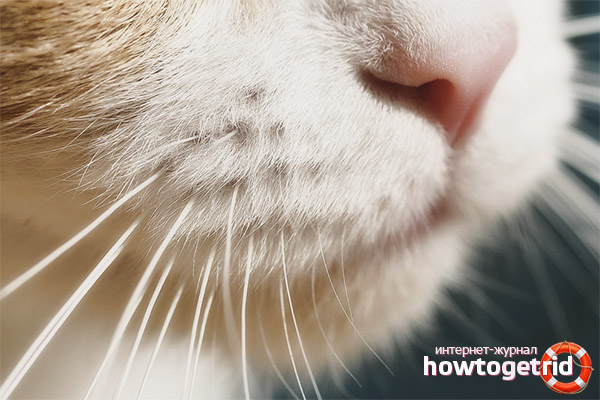
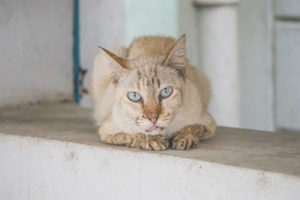
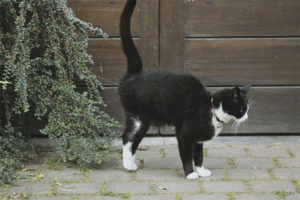
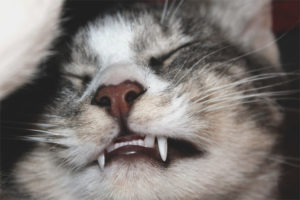
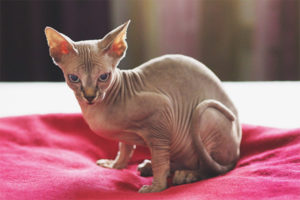
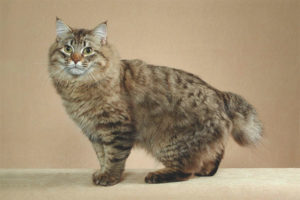
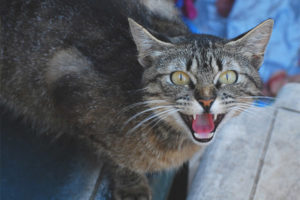
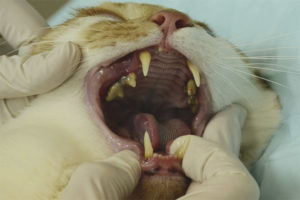
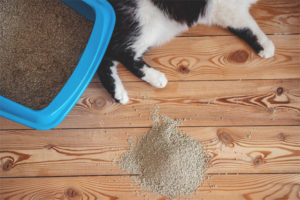
Submit